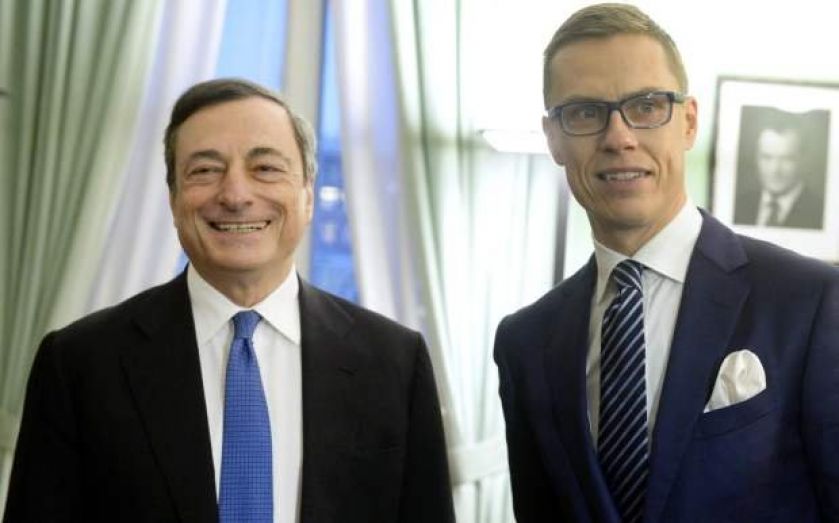Mario Draghi makes case for for economic union

Mario Draghi has upped the rhetoric and made the strongest statement yet about creating economic union in the single currency zone.
Speaking in Helsinki, the European Central Bank (ECB) president said existing powers, under the Stability and Growth Pact, do not go far enough.
Draghi wants certain decisions about fiscal reform to be taken from the hands of local governments and vested in Brussels. The call will likely be appreciated by the Germans, who worry if the European Central Bank (ECB) embarks on a campaign of quantitative easing, countries could take advantage of lower sovereign bond yields to renege on reforms.
The idea is some thing Draghi has articulated before both in London and at Jackson Hole. Here, however, his tone was stronger. He said he didn't believe that existential fears about the EU's future would subside without economic and fiscal union.
The importance of each country sticking to its commitments under the stability and growth pact should therefore be beyond debate.
Indeed, that a sound fiscal framework is necessary in a monetary union goes without saying. Whether it is sufficient to safeguard fiscal policy as a stabilisation tool, however, has been challenged by our experience during the crisis.
There is a strong case for sovereignty over relevant policies to be exercised jointly. That means above all structural reforms.